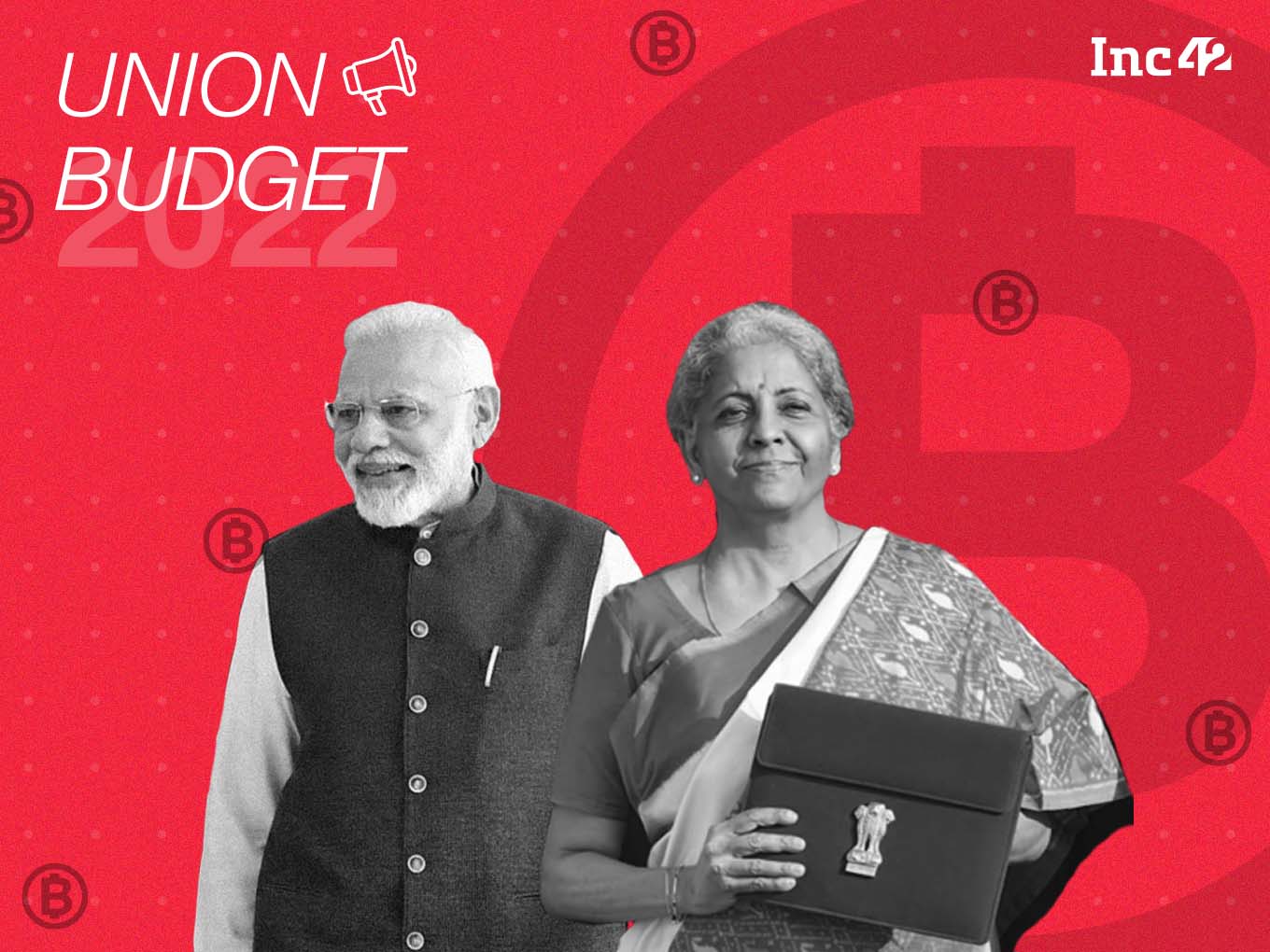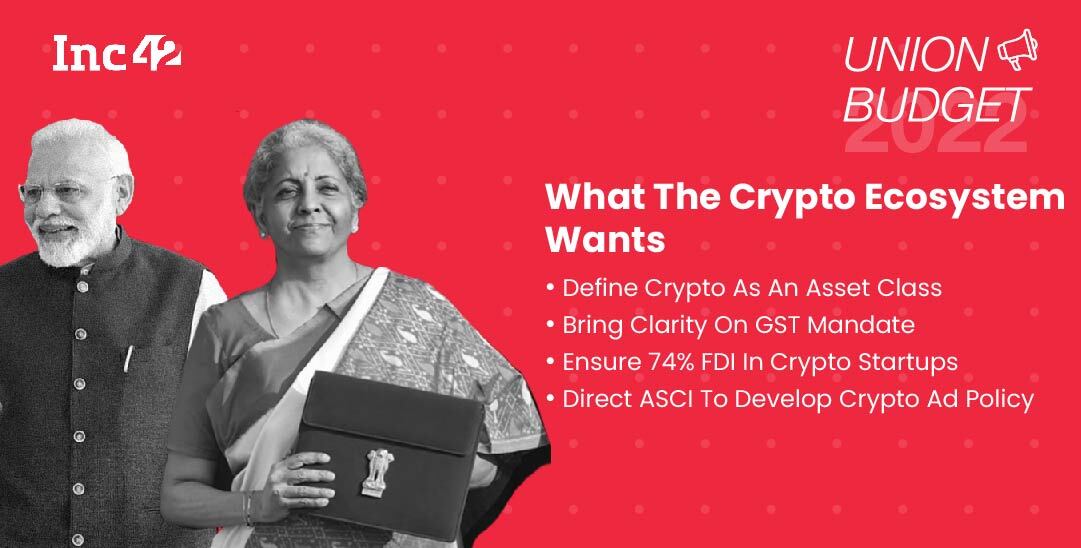
With 20 Mn or so Indians actively involved, cumulative investments in cryptocurrencies in the country jumped from $1 Bn in 2013 to more than $10 Bn in November 2021, according to crypto intelligence and research platform CREBACO.
Despite growing investor interest and participation, the Indian government appears disinclined to introduce the long-pending Crypto Bill in Parliament to address all major concerns regarding crypto and thus safeguard the interests of users, investors and founders of crypto startups.
Speaking on December 13, 2021, at Lok Sabha, Pankaj Chaudhary, minister of state in the finance ministry, said:
“The inter-ministerial committee [IMC] report was further examined, and a Bill on cryptocurrency and the regulation of official digital currency is under finalisation for the consideration of the Cabinet.”
While the Bill may not be presented in the upcoming Union Budget 2022, with crypto falling into multiple categories, certain steps could be taken by the concerned ministries and authorities to bring in certain clarities that could guide the industry in the meantime.
For instance, the GST Council will have to decide any issue regarding the Goods and Services Tax (GST) on crypto commissions. Similarly, issues related to FEMA (Foreign Exchange Management Act) and LRS (Liberalised Remittance Scheme) come under the RBI.
“The Ministry of Corporate Affairs (MCA) takes care of corporates’ crypto disclosure standards. And the ministry of finance frames policies around direct taxes. If we consider the cybersecurity issues surrounding crypto, it should come under the domain of MeitY,” said Rameesh Kailasam, CEO of the tech industry association IndiaTech.
The Budget 2022 is expected to mull levying TDS/TCS on the sale and purchase of cryptocurrencies above a certain threshold. However, the Union Budget is not just about bookkeeping. It is a vision document of the Indian government, detailing what it intends to accomplish in the next financial year. So, the crypto industry wants Budget 2022 to clarify all critical aspects, including the regulation and the taxation policy.
What are the key demands? Will finance minister Nirmala Sitharaman bring more clarity on crypto even if the Bill is not introduced during the Budget Session?
Inc42 spoke to crypto industry representatives to understand their Budget hopes.
Define Crypto
“We hope the upcoming Union Budget will bring in regulatory clarity and help standardise best practices to address misconceptions around this emerging asset class,” said Sharan Nair, chief business officer of CoinSwitch Kuber.
“Why is the government’s policy so hazy about crypto?” a leading crypto startup founder asked. The primary demand of crypto startup founders is that the government should dispel the growing confusion around crypto.
The fundamental expectation is to define and decide what is to be allowed and the nomenclature that the government wants to accord to set the tone for the laws that will automatically come under this category, said Kailasam of IndiaTech.

Bring Clarity On GST Mandate
“There are still confusions around how the GST gets handled in different cases. The Budget may address this by clarifying the classification of crypto assets in India. It may say it is similar to securities or land or other assets. Then the GST applicability may get clearer,” said Sathvik Vishwanath, cofounder and CEO, Unocoin
Such confusions around the GST application have been here for some time. There is no clarity from the Income Tax department about how GST should vary if crypto transactions are done in crypto or foreign exchanges. This is important as exchanges have been charging varying commissions on such transactions. The GST Mumbai Commissionerate earlier alleged that crypto exchange WazirX paid GST only on the commission earned in INR but not on the amount earned in WRX.
The commissions charged on crypto-to-crypto transactions are usually on the lower side.
Earlier, some of the exchanges did not pay GST on crypto-to-crypto transactions claiming that GST on the commissions on INR to crypto transactions was already paid. These exchanges are currently paying 18% GST on commissions earned from INR-to-crypto transactions and vice versa.
There is further confusion with regards to the applicability of GST on commission value or on value of transaction.
While the GST Council will decide on the taxation part, the Budget 2022 should give direction and clarity regarding the nature of the asset class, said Kailasam. Then GST will be applicable only on the commission that is earned by the exchanges and the confusion that currently exists on whether it should apply on the commission or it should apply on the whole transactions will go away, he added.
NFTs, too, will come under the tax domain, but the format is yet to be defined. According to Keyur Patel, cofounder and chairman of GuardianLink and BeyondLife.club, NFTs are digital assets that cover art, music or any other form of collectables. Therefore, GST will be a more suitable option than long-term or short-term capital gains taxation. Whatever be the outcome, both crypto and NFT will be subjected to tax governance, and the same should be defined in the Budget.
Ensure 74% FDI In Crypto Startups
Although the government has allowed up to 74% overseas investments for banking sector, it recently made amendments in 2021 to raise the FDI cap from 49% to 74% in the insurance space too.
Citing this development, IndiaTech has demanded on behalf of the crypto community that the government should also allow 74% FDI in the crypto sector to secure investors’ interests.
Direct ASCI To Develop Crypto Ad Policy
Finally, the promotion of crypto is one of the major areas where clarity is needed, say crypto founders. Incidentally, the Blockchain and Crypto Assets Council (BACC) is developing a crypto ad policy similar to SEBI’s mandate for mutual funds and other financial products. But more needs to be done.
“This is one of the aspects where some clarity is needed to ensure consumer protection,” said Unocoin’s Vishwanathan. For the time being, the whole thing is self-regulated, but the exchanges are not legally bound to follow this framework. It is better to have specific regulations so that all exchanges will follow that, he added.
Kailasam said that the Union Budget 2022 should direct the Advertising Standards Council of India (ASCI) to develop ad policy standards just like it is done for other industries.
Further, a committee of regulators or an Inter-Ministerial Committee (IMC) could be made to monitor the industry till the Bill comes up with certain clarity with regards to its regulations.
The post Indian Crypto Startups Seek Clarity On Tax Mandates, 74% FDI From FM In Union Budget 2022 appeared first on Inc42 Media.









